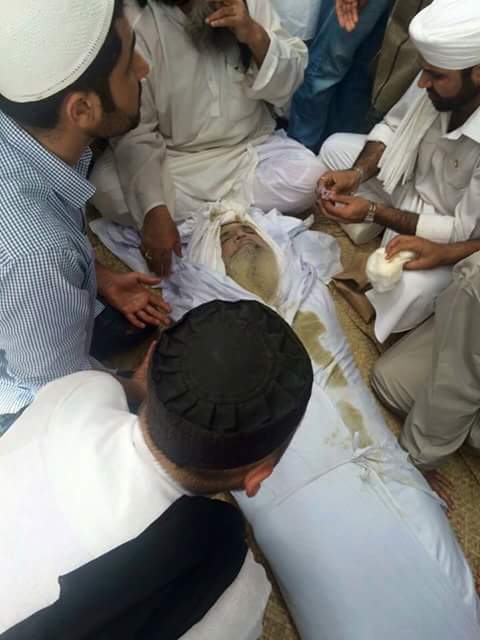Fearing The Dead
By Shah Alam Khan
13 August, 2015
Countercurrents.org

Necrophobia is a dreaded psychiatric disorder where the patient has a fear of the dead. Like a number of other psychiatric diseases, the condition has little hope of a complete cure and we are told that most patients live with the disease. Fortunately, the condition is rare and by all assumptions there would be a few hundred thousand patients across the globe. But can we imagine what happens when a country suffers from necrophobia? Yes, a country! And that too one of the most populous country on the planet?
Welcome to the Democratic Republic of India.
When on July 30th, Yakub Memon, the culprit of 1993 Bombay blasts was hanged. We were told by chest thumping anchors and balking government representatives that a closure for the victims of the blast has been achieved. ‘Closure’ as accomplishment and surety.
The highest court of the land handed this ‘closure’ to the kin of the blast victims after thorough deliberations and evidence, which I am sure, must have weighed heavily, beyond the ‘collective consciousness’ of the nation. The predawn verdict was compared by some to the rays of the morning sun thrust into darkness, to usher a new era. A new era, which could have, only begin with the extinction of a life.
Accepting that Yakub Memon was guilty. Accepting that it was ‘correct’ to give him the capital punishment. And accepting that he should have been hanged to death on the specified day and time (as he was), there is something, which still needs pointing out. The Mumbai Police issued a warning to those planning to attend Memon’s prospective funeral. The legal warning read that nobody will photograph/videograph Yakub Memon's corpse during transportation. This step had been taken by the police to ensure tranquility and harmony in the city. A measure, we were told, taken to prevent visuals being used later by anti-national elements to provoke people and youngsters.
Yakub Memon was luckier than his predecessor at the gallows, Afzal Guru, whose body was never handed over to his family. After being hanged to satisfy the collective consciousness of the nation, Guru was buried within the premises of the Tihar jail itself. The fact that the government fears the dead amazes me. Every now and then the jingoist machinery reminds us of what a willing state can achieve. From waging wars to sending rockets to Mars, governments in power have time and again shown their might.
How the hell can such mightier than the mighty state be afraid of the dead?
It is baffling that a corpse as lean as that of Afzal Guru and as feeble and old as of Yakub Memon could actually push a government into prohibitory and preventive mode. This necrophobia of the Indian state, which boasts of one of the largest armed forces on the planet, is shameful to say the least. On a closer scrutiny, the present sarkar and its agenda of “hope” appears to flow through the corporate barrel. Be it the land bill, the new drug policy, or the venomous comments of its own members, the government in power appears to have yet another psychiatric disorder. It suffers from cherophobia, the fear of happiness (of its own people)!
Shah Alam Khan, AIIMS, New Delhi
Comments are moderated


